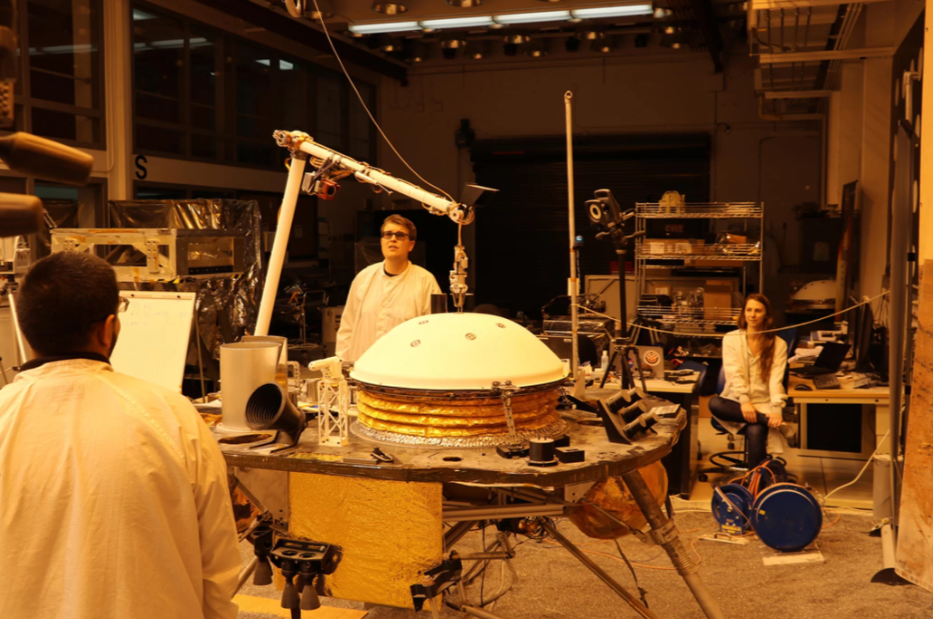
It sounds like something from a 19th-century sci-fi novel: A Mars robot with a metallic five-fingered claw that’s actuated by the melting of wax.
But that robot is very real: It’s NASA’s InSight Mars lander, which launched toward the Red Planet in early May and is scheduled to touch down on Nov. 26.
InSight’s mission aims to provide a detailed look at Mars’ interior structure and composition. The lander carries two primary science instruments — a burrowing heat probe called the Heat Flow and Physical Properties Package (HP3) and the Seismic Experiment for Interior Structure (SEIS), a suite of super-precise seismometers. (InSight will also use its onboard communications gear to perform a radio-science experiment that should shed further light on Mars’ innards.)
That’s where InSight’s steampunk claw, which sits at the end of the lander’s 5.9-foot-long (1.8 meters) robotic arm, comes in. It will grasp and place all three of these items — work never before done by a robot on another world, mission team members said.
“The robotic arm has to place everything perfectly,” Ashitey Trebi-Ollennu, team lead for InSight’s instrument deployment system operations at NASA’s Jet Propulsion Laboratory (JPL) in Pasadena, California, said in a statement. “But we like a challenge.”
Each of the three items to deploy has been outfitted with a knob for the claw to grab. When it’s grappling time, InSight’s handlers will initiate the heating of paraffin wax inside the claw. When the wax melts, it will expand, pushing out a small rod. The rod will then press on a spring, opening the fingers, NASA officials explained.
When the claw is in position, the heater will be turned off. The wax will then cool and the fingers will contract, closing over the knob.
If this description evokes images of arcade claw-machine games in your head, well, you’re not the only one.
“We have a lot riding on InSight’s robotic arm, so we’ve been practicing our version of the claw game dozens of times,” InSight project manager Tom Hoffman, also of JPL, said in the same statement. “The difference, of course, is that, unlike the claw-machine designers, our robotic-arm team works hard to allow us to win every time.”
The melting-wax system may sound low-tech, but the InSight team chose it advisedly.
“It’s actually a thoroughly proven technology,” InSight team member Nicolas Haddad, a mechatronics engineer at JPL, said in a JPL “Crazy Engineering” video about the mission’s claw. “It’s used in space applications like the InSight grapple, but it’s also [been] used for decades in things like our car thermostats and our appliances at home.”
“InSight” is short for “Interior Exploration using Seismic Investigations, Geodesy and Heat Transport.” Data gathered by the lander on Mars should help researchers better understand the formation and evolution of rocky planets in general, NASA officials have said.
Both HP3 and SEIS must be set down on the Martian surface, at a decent remove from the lander’s body, to gather high-quality data. And SEIS must also be covered with a specially designed shield to protect it from the wind and thermal extremes.